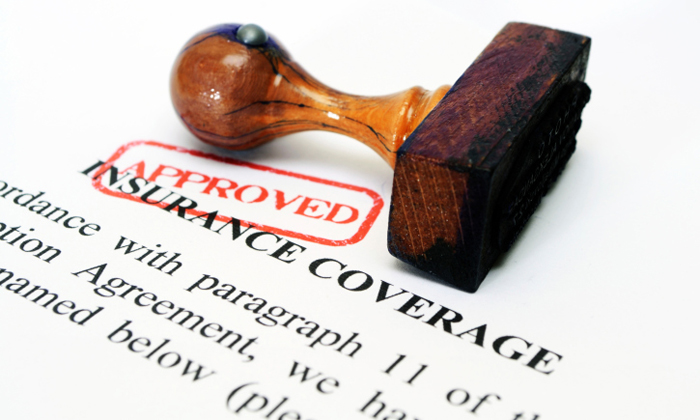The Four Must-Have Types of Insurance

It’s likely we are all on the same page when it comes to insurance: Insurance is boring, but necessary. You don’t want to pay for it, you hope you never need to use it, but on the off chance something goes wrong—you really need it. But there are so many types of insurance available, it can be hard to determine what types are actually necessary. To help clear the static, here are the four types of insurance you need to have.
Auto Insurance
You shouldn’t spend more than 15 percent of your take-home pay on transportation expenses. This includes car payments, fuel, maintenance and insurance. One of the best ways to save money on car insurance is to avoid filing claims. You’ve paid a lot into your car insurance, so wanting to claim even minor incidents makes sense, but in reality, insurance is only meant for the big accidents. Filing when your claim is barely over your deductible will only serve to raise your premiums in the future.
Homeowners or Renters Insurance
Whether you own or rent, you need to protect yourself. When it comes to renters insurance, you may think, “What’s the point of protecting something I don’t own?” The reason is simple—because your landlord’s insurance doesn’t cover your stuff. If your apartment floods, the landlord’s insurance will cover the structure, but you’re stuck replacing your $1,000 laptop.
The best part about renter’s insurance is how cheap it is; it’s rarely over $200 a year! There is no excuse to ignore this simple, yet valuable coverage. Home insurance is more common, mostly because you can’t get a mortgage without it. Don’t forget to factor in the cost of insurance when you evaluate if a rent or mortgage payment is affordable for your budget.
Health Insurance
An ideal budget recommends only 5 percent of your take-home pay be spent on medical expenses. Let’s assume you are a single person with a monthly take home pay of $3,000, which leaves $150 available for medical expenses. You’re facing two likely scenarios.
- Scenario #1: Insurance through your employer costs you $80 a month. You then have $70 to use for prescriptions, a gym membership and other health-related expenses.
- Scenario #2: You purchase your own insurance for $190 a month, putting you $40 over budget. Not terrible, but factor in a gym membership or any prescriptions and you’ve suddenly got a big problem on your hands. Your health is nothing to mess around with, so find ways to cut expenses in less important categories like clothing and entertainment to make room for these expenses.
Life Insurance
Hopefully you’ll live for a very long time, but the harsh truth is that we are all going to die someday. That’s when life insurance comes in. Death is always sad, but it can also be devastating to the survivors’ finances. In order to ease the financial disruption of death, take time to purchase life insurance now. Your life insurance should be 10 times your current income. If you make $50,000 a year, you need $500,000 in life insurance. The good news is that life insurance is very affordable, especially if you get it early. Apply early, get 10 times your income, and then rest in the assurance that your survivors will be taken care of.
Bonus: Disability Insurance
Four types of insurance may seem like plenty of coverage, but there is a bonus type of insurance worth considering. Disability is a type of insurance you hope you never have to use, but if something does happen you need to be able to replace your income. Many employers offer group disability insurance, but if your employer doesn’t offer disability, take time to research individual plans. Applying for disability insurance can be a confusing and difficult process, but the alternative is scarier.
As always, one can hope that nothing catastrophic happens, but the peace of mind that comes from being fully covered by insurance is undeniable. A little effort now can set you up for a successful financial future, no matter what comes your way.
Peter Dunn, aka Pete the Planner, is an award-winning financial mind who has authored five books, hosts the popular Pete the Planner radio show and travels around the country offering financial education. His signature wit will have you laughing as you learn. For more from Peter, visit www.petetheplanner.com.
Share this:
- Click to share on Facebook (Opens in new window)
- Click to share on Twitter (Opens in new window)
- Click to share on Pinterest (Opens in new window)
- Click to share on Tumblr (Opens in new window)
- Click to share on LinkedIn (Opens in new window)
- Click to email a link to a friend (Opens in new window)
- Click to print (Opens in new window)








